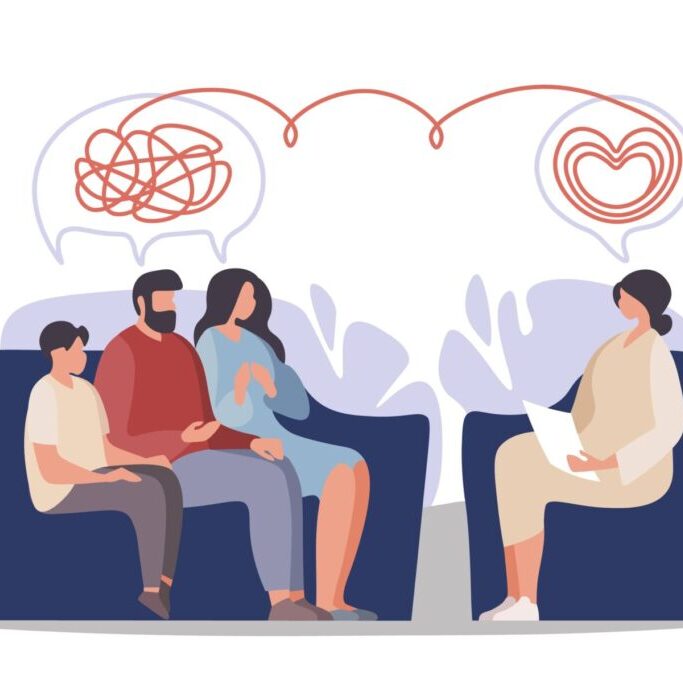Addressing Addiction Holistically

Addiction is a complex and pervasive disease that affects millions of individuals and thousands of Chicagoans every year. As such, finding an addiction therapist can be a great step in recovery. (Did you know that Chicago has one of the most robust AA communities in the country?)
The consequences of addiction can be devastating, impacting an individual’s personal relationships, finances, and overall health. Fortunately, there is help available for those struggling with addiction. Working with a Chicago therapist who specializes in addiction treatment can provide individuals with the support, guidance, and resources necessary to overcome addiction and lead a fulfilling life in recovery.
An addiction therapist is a mental health professionals who are trained to help individuals overcome addiction. These therapists have a deep understanding of the physical, psychological, and emotional factors that contribute to addiction, as well as the strategies and techniques necessary to promote recovery. Therapists addressing addiction often work in a variety of settings, including private practices, hospitals, and addiction treatment centers.
While therapy for addiction is one of the most important aspects of addiction treatment, self-care is an essential component of addiction recovery. Self-care refers to the intentional and proactive actions individuals take to support their own physical, mental, and emotional well-being. This holistic approach includes practices such as mindfulness, exercise, and nutrition.
Research Supports Holistic Healing!
Anderson, Hurley, and colleagues (2020) found that individuals who received integrated care in addition to medication-assisted treatment and therapy had higher rates of treatment completion and longer periods of abstinence than those who received medication-assisted treatment and therapy alone. The authors suggest that incorporating integrated care into addiction treatment can provide individuals with the support and resources necessary to address the physical, psychological, and social dimensions of addiction and achieve long-term recovery. Similarly, researchers Hernandez-Serrano, Gratz, and Tull (2020) argue that traditional addiction treatment approaches that focus solely on abstinence may not be effective for addressing the underlying emotional dysregulation that often accompanies addiction. They suggest that a holistic approach to addiction treatment that addresses emotional regulation can improve outcomes for individuals with addiction. Despite the evidence, holistic approaches are too often overlooked in recovery.
Mindfulness, Exercise, and Nutrition Matter!
Mindfulness is a practice that involves paying attention to the present moment in a nonjudgmental way. It has been shown to be effective in helping individuals manage stress, reduce anxiety, and promote overall well-being. For individuals in addiction recovery, mindfulness can be a powerful tool for managing cravings and other triggers associated with addiction. In fact, a 2017 systematic review of randomized controlled trials found that mindfulness-based interventions were effective in reducing substance use and increasing the likelihood of abstinence among individuals with substance use disorders (Garland et al., 2017).
Exercise is another important aspect of self-care for individuals in addiction recovery. Exercise has been shown to improve mood, reduce stress, and promote overall health and well-being. For individuals in addiction recovery, exercise can be a powerful tool for managing cravings and reducing the risk of relapse. A 2004 study published in the journal Neuroscience & Biobehavioral Reviews found that exercise can activate similar neural pathways as drugs of abuse and may therefore be effective in reducing drug-seeking behavior (Lynch et al., 2004).
Nutrition is also an important aspect of self-care for individuals in addiction recovery. Addiction can often lead to poor nutrition, which can in turn exacerbate the negative physical and psychological effects of addiction. Proper nutrition is essential for promoting overall health and well-being, as well as for supporting the recovery process. A 2017 review of the relationship between nutrition and addiction found that poor nutrition can contribute to the development of addiction and may also be a barrier to recovery (Blum et al., 2017). The review suggests that a nutrient-dense diet may be beneficial for individuals in addiction recovery, as it can help to improve overall health and support the recovery process.
In addition to mindfulness, exercise, and nutrition, there are many other self-care practices that can be beneficial for individuals in addiction recovery. These practices may include things like journaling, spending time in nature, practicing gratitude, or connecting with a supportive community.
Does Therapy for Addiction Matter?
Therapy provides individuals with a safe and supportive environment where they can explore the root causes of their addiction and develop the skills and strategies necessary to overcome it. Addiction therapists in Chicago use a variety of evidence-based therapies to help individuals overcome addiction, including cognitive-behavioral therapy (CBT), dialectical behavior therapy (DBT), and motivational interviewing.
Working with a Chicago therapist who specializes in addiction treatment can provide individuals with the support and guidance necessary to develop a comprehensive self-care plan that addresses all aspects of their physical, mental, and emotional health.
We understand that recovery is a journey. We’d be honored to join your journey whether in-person at our Lakeview offices or via telehealth. Contact us to schedule an appointment with one of our therapists today!
This blog is made for informational and educational purposes only. It is not medical advice.
The information in this blog is not intended to (1) replace a one-on-one relationship with a qualified licensed health care provider, (2) create or establish a provider-patient relationship, or (3) create a duty for us to follow up with you.



